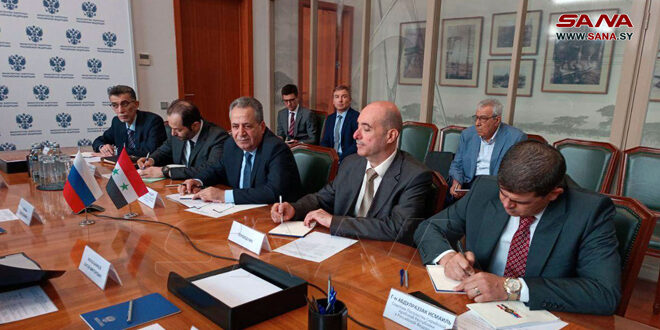Moscow has reaffirmed its support for the steps toward rapprochement between Turkey and Syria, expressing confidence in the possibility of holding close meetings in the near future. Turkish Defense Minister Yasar Guler recently made statements suggesting that there are no insurmountable issues preventing the restoration of relations between Turkey and Syria. He emphasized that all problems between the two countries could be resolved, but did not mention the withdrawal of Turkish forces from Syrian territory or the possibility of setting a timetable for such a withdrawal.
In an interview with Russia Today, Russian Foreign Minister Sergey Lavrov confirmed Moscow’s interest in normalizing relations between its partners in Damascus and Ankara. He stated, “With difficulty, we were able in 2023 to hold talks in which we tried to discuss conditions that could contribute to the normalization of relations between Syria and Turkey. The talks were useful, although we could not agree to move forward.”
Lavrov added, “The Syrian government believes that continuing the normalization process requires determining the procedures for the withdrawal of Turkish forces from Syria. The Turks are ready for this, but no specific parameters have been agreed upon so far.”
The Russian foreign minister stressed the importance of preparing for a new Russian-Syrian-Turkish-Iranian meeting, expressing confidence that it would take place in the very near future. He reiterated that Moscow is undoubtedly interested in normalizing relations between Damascus and Ankara.
Regarding the U.S. presence in Syria, Lavrov criticized the United States for not addressing any problems related to combating terrorism in Syria. Instead, he accused the U.S. of exporting oil, gas, and grains from the region. Lavrov further condemned the imposition of harsh sanctions, including the Caesar Act, on territories controlled by the U.S., stating that the resources in these areas, including the richest oil and gas fields and the most fertile farmland, are being ruthlessly exploited.
Iranian, American or Russian Drone? What Fell in Deir-ez-Zor Desert?
Lavrov’s remarks, in which he mentioned for the first time that Turkey is prepared to withdraw from Syrian territory, came just hours after statements from the Turkish Defense Minister. However, Guler did not mention the withdrawal process in his comments. The Turkish newspaper Hurriyet quoted Guler as saying, “There is no problem that cannot be solved between the two countries. After resolving these issues, I believe we can continue our normal activities as neighbouring countries.”
Guler described President Bashar al-Assad’s speech to the People’s Assembly on the future of relations with Turkey as “very positive,” highlighting that both countries have a shared interest in ending the current conflict environment.
In the interview with Hurriyet, Guler further emphasized, “It would be in the interest of both countries to end this conflict environment as soon as possible and return to normal activities in their relations.”
He reiterated, “There is no problem between us that is difficult to solve. I believe that after the problems are resolved, we can continue our normal activities as neighbouring countries. Ankara and Damascus are capable of solving all issues.”
Last Thursday, Turkish Parliament Speaker Numan Kurtulmus made notable statements, expressing his willingness to meet with the Speaker of the People’s Assembly, Hamouda Sabbagh. Kurtulmus stated that there is no enmity between the Syrian and Turkish peoples.
In a television interview, Kurtulmus said, “We place great importance on parliamentary diplomacy and are ready to meet with my Syrian counterpart if asked to perform this task.”
When asked about who has benefited the most in the Middle East over the past 13 years, particularly in Syria, he replied, “The only beneficiary in the region is Israel.” He added, “The biggest outcome of what has happened is that Israel now faces no significant challenges in this region.”
This article was translated and edited by The Syrian Observer. The Syrian Observer has not verified the content of this story. Responsibility for the information and views set out in this article lies entirely with the author.


